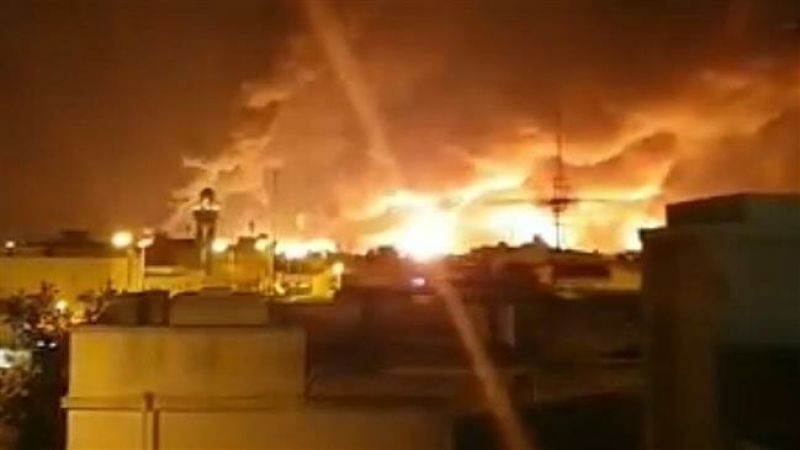
Local Editor
Yemeni officials have dismissed claims that the country is incapable of carrying out on its own the kind of attacks that targeted two plants at the heart of Saudi Arabia's oil industry on Saturday.
Mohammed al-Bukhaiti, a member of Yemen's Supreme Political Council, on Sunday pledged that Yemeni forces will continue to pound the Saudi oil industry until the kingdom ends its deadly war.
The Houthis deployed as many as 10 drones to bomb Abqaiq and Khurais oil facilities run by the Saudi state-owned oil company Aramco before dawn Saturday.
The unprecedented attack knocked out more than half of Saudi crude output, or 5% of global supply, prompting Saudi and US officials to claim without any evidence that it probably originated from Iraq or Iran.
Bukhaiti told Iran's Tasnim news agency that blaming the attacks on other countries shows "cowardice" in facing up to the reality of Yemen's military power.
"Saudi Arabia declared war against Yemen on the grounds that our missile inventory posed a threat to its security," he said. "Today, we are surprised to see that when we hit Saudi oil wells, they exonerate Yemen from conducting these strikes and accuse others of doing them."
"This is viewed as an own criminal decree of conviction. It also shows their cowardice," Bukhaiti added.
US Secretary of State Michael Pompeo was quick to blame Iran for the brazen attacks, claiming there was no evidence the drones had originated from Yemen.
Bukhaiti mocked the proposition, saying Washington resorted to such rhetoric to hide the fact that their radars were simply incapable of tracking Yemeni drones.
"America and Saudi Arabia's radars cannot intercept Yemeni aircraft. If they could intercept them, they would have shot them down," he argued.
Bukhiati said the fact that Pompeo did not produce evidence to substantiate his claim showed they were "bankrupt" both politically and militarily.
Iranian Foreign Ministry spokesman Abbas Mousavi dismissed Pompeo’s allegations as "blind and fruitless remarks” that were "meaningless” in a diplomatic context.
Iranian Foreign Minister Mohammad Javad Zarif also responded to Pompeo, saying the United States had failed in its campaign of "maximum pressure” and was now "turning to ‘max deceit’.”
Bukhiati made it clear that the Houthis would only stop attacking Saudi Arabia once it abandons "serving US interests" and starts respecting the interests of its own people.
"Ending the war now is no longer a shared interest of Yemen and Saudi Arabia. Rather, it benefits Saudis more than it does Yemen because Yemen doesn't have much to lose," he said. "Yet we are witnessing Saudi Arabia's stubbornness because it is the United States that decides for them."
"These attacks will automatically stop when Saudi Arabia ends its aggression and lifts its blockade against Yemen," he said. "These operations will only expand and target facilities that are more vital and more sensitive than oil facilities."
Source: News Agencies, Edited by Website Team